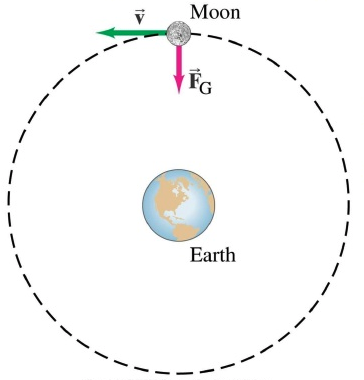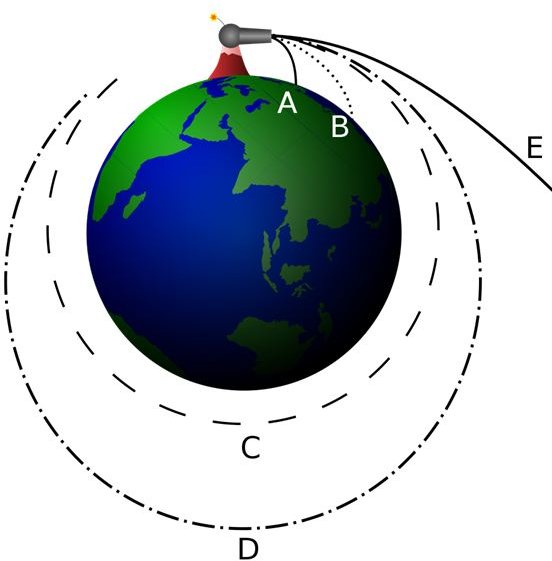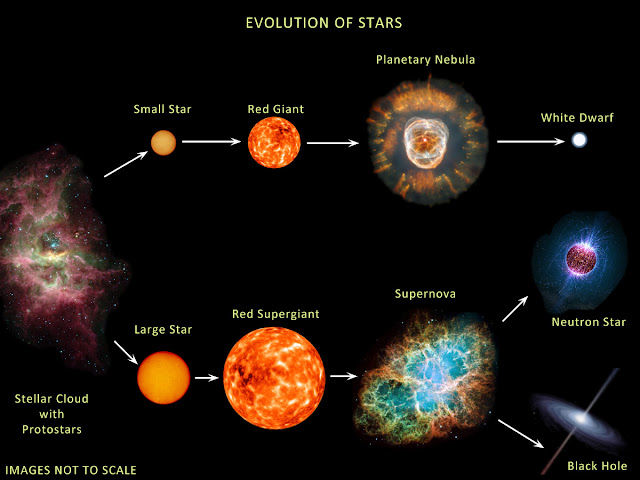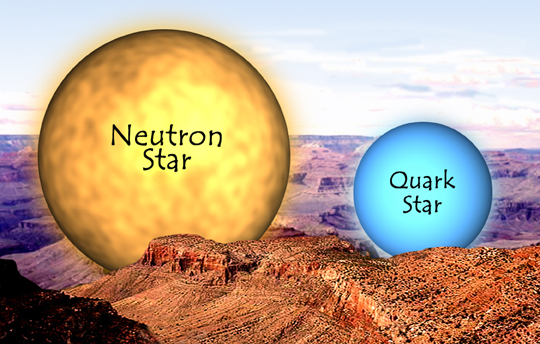Gravity, Satellites and Black Holes
M. Rocha
Physics 2B
The Universal Law of Gravity
Is the force pulling an apple down the tree the same as the one keeping the moon around the Earth?

The Universal Law of Gravity

Newton's Mountain:
If you throw a stone horizontally fast enough, the stone keeps falling, but it never reaches the ground (because of the curvature of the Earth)
The Universal Law of Gravity


Is the force pulling an apple down the tree the same as the one keeping the moon around the Earth?
The Universal Law of Gravity
Is the force pulling an apple down the tree the same keeping the moon around the Earth?

Yes it is!
Is the force of gravity
Force of Gravity






The force of gravity must be proportional to the product of the mass of the two objects interacting (i.e. M1*M2)
M1
M1
M2
M2
M1
M1
The Universal Law of Gravity
The force of gravity is inversely proportional to the square of the distance
This is because intensity spreads over the surface area of a sphere

The Universal Law of Gravity
This is because intensity spreads over the surface area of a sphere
The force of gravity is inversely proportional to the square of the distance

The Universal Law of Gravity
The force of gravity is proportional to the product of the mass of the objects and inversely proportional the square of the distance

Checkpoint
An apple weighs 1 N at Earth's surface. How much does it weighs when it is 4 times as far?

4 R
Weightlessness/Zero Gravity


Being weightless does not mean there is no gravity, what it means is that there is no support force (free falling)

Without a support force you experience weightlessness, but that doesn't mean there is zero gravity

Weightlessness/Zero Gravity
Without a support force you experience weightlessness, but that doesn't mean there is zero gravity

Weightlessness/Zero Gravity

Ocean Tides
The ocean tides are caused by differences in the gravitational pull of the moon on opposite sides of Earth

As the Earth rotates tides change during the day



Ocean Tides
The sun also contributes to ocean tides, but only about half as much as the moon
The difference in gravitational pull by the sun on opposite sides of Earth is very small

The Sun's pull on Earth is 180 times greater than the moon’s pull on Earth, so why aren’t tides due to the Sun 180 times greater than tides due to the Moon?
Ocean Tides
When the sun, the moon, and Earth are aligned, spring tides occur

Ocean Tides
When the attractions of the sun and the moon are at right angles to each other (at the time of a half moon), neap tides occur

Ocean Tides
Tides are most noticeable in fjords and basins due to a funneling effect. The Bay of Fundy has some of the most extreme tide swings in the planet (15+ m/48+ ft)

Projectile Motion and Satellites
Remember Free Fall Motion?
,

Checkpoint
How far down (distance) would you fall in 1 second after you base jump from a cliff. Ignore air resistance.
d = 5 meters after 1 second
,
Remember Free Fall Motion?
,
d = 5 meters after 1 second
5m in 1s

Projectile Motion is just Free Fall Motion with an horizontal velocity component

Free Fall:
Projectile:
If a projectile falls 5m in 1s,


and the curvature of earth is so that it drops 5m for every 8 km
What happen if you throw a rock with an horizontal velocity of 8000 m/s = km/s (18,000 mi/h)?
Satellites

Satellites


Satellites

A satellite moves in an elliptical orbit
a) When the satellite exceeds 8 km/s, it overshoots a circle. b) At its maximum separation, it starts to come back toward Earth.
c) The cycle repeats itself.
Satellites
a) A projectile's path is a section of an elliptical orbit
b) a satellite moves in an elliptical orbit

Scape Velocity

Neglecting air resistance if you throw a rock with a velocity greater than 11.2 Km/s (25000 miles/h), it wont come back

Black Holes

At the surface of a black hole the force of gravity is so strong that not even light has enough velocity to scape

Black Hole Formation

Only stars with a mass > ~1.5x the mass of the sun become black holes
Newtonian Gravity v.s. Einstein's

Einstein's
Gravity is the curvature of space and time due to massive objects
V.S.
Newtons
Gravity is a force field surrounding massive objects. Other masses interact with this force field
Gravitational Waves
First observed in 2015
The End
Energy Conservation on Satellites



On a circular orbit the force does not work and the PE and KE remain constant
On an elliptical orbit the force does some work and the PE and KE vary, however KE + PE is conserverd
Black Holes

The size of the sun is the result of a “tug of war” between two opposing processes: nuclear fusion (pressure) and gravitational contraction
If the fusion rate increases, the sun will get hotter and bigger. If the fusion rate decreases, the sun will get cooler and smaller
Black Holes

When the sun runs out of fusion fuel (hydrogen), gravitation will dominate and the sun will start to collapse

Neutron starts can pack up ~1.4x the mass of the sun on a radius that is the size of a city
In order to achieve such a high density they combine electrons and protons to form neutrons